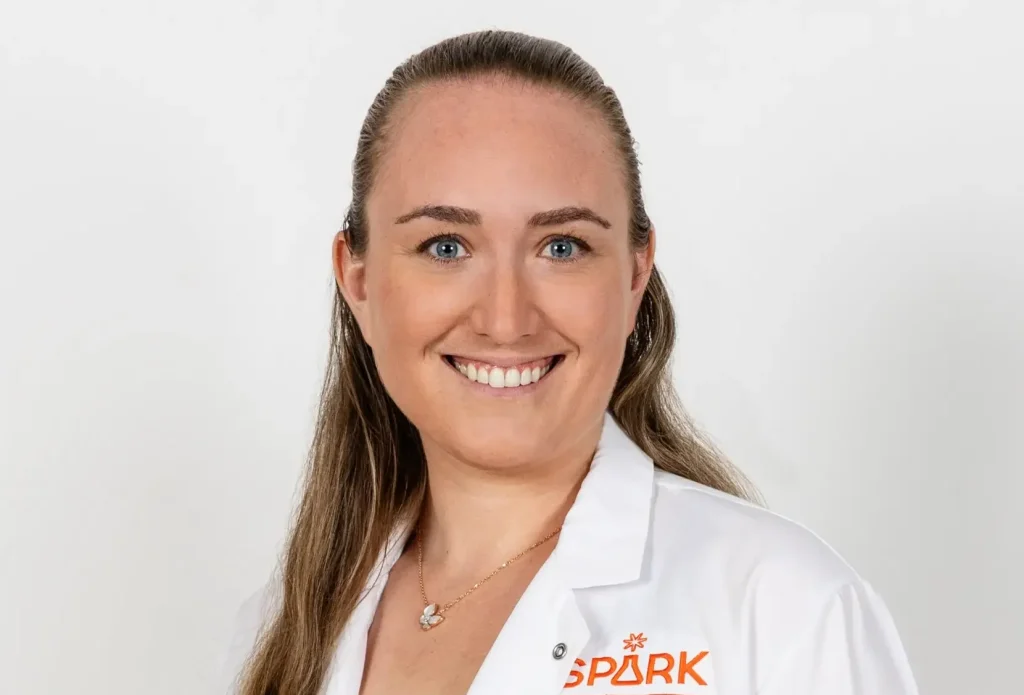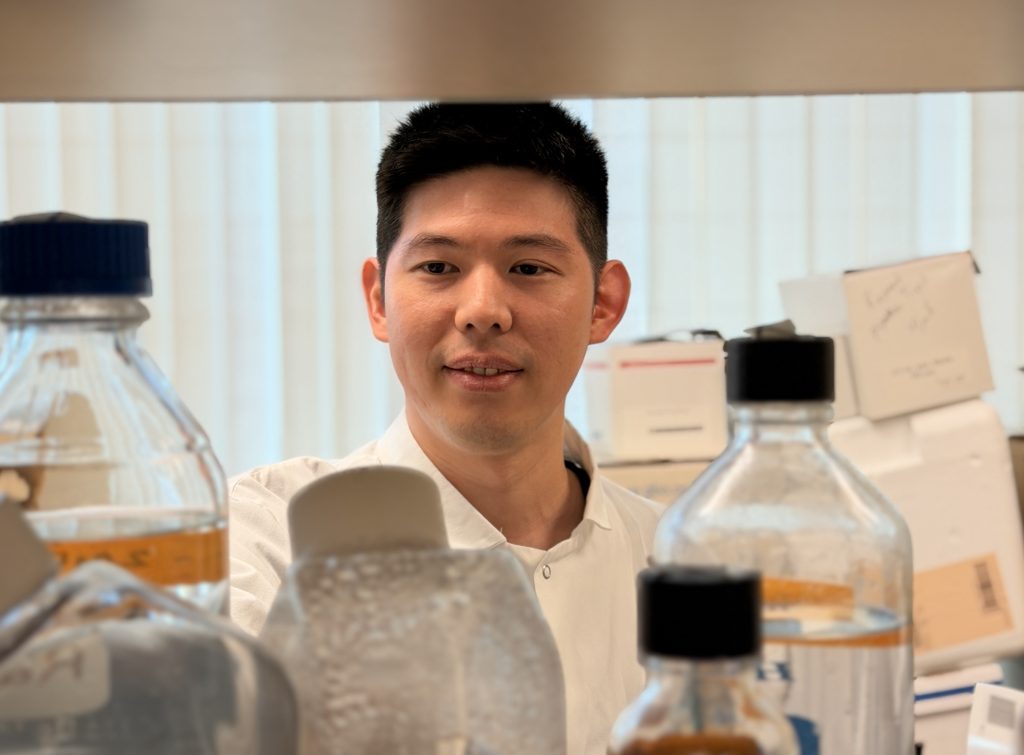LA JOLLA, CA—Vaccine researchers at La Jolla Institute for Immunology (LJI) have been awarded up to $49 million from the U.S. Government’s Advanced Research Projects Agency for Health (ARPA-H). The LJI scientists will lead a national team to develop life-saving vaccines against a broad array of herpesviruses that infect the majority of Americans and can cause cancer, autoimmune disease, and birth defects. The award is part of ARPA-H’s Antigens Predicted for Broad Viral Efficacy through Computational Experimentation (APECx) program.

“ARPA-H empowers scientists to take on the most pressing problems in human health, to muster a multi-faceted team of top scientists, and to fuel the work with the resources needed to make a difference,” says project leader and LJI Professor, President & CEO Erica Ollmann Saphire, Ph.D., MBA.
Established by the U.S. Government in 2022, the mission of ARPA-H is to invest in high-impact biomedical and health research that can lead to solutions to challenging health problems.
The new LJI project is called America’s SHIELD: Strategic Herpesvirus Immune Evasion and Latency Defense. America’s SHIELD will protect against herpesviruses such as Epstein-Barr virus and cytomegalovirus (CMV) that are major global health concerns. The highly contagious Epstein-Barr virus, for example, causes mononucleosis, multiple sclerosis, inflammation of the heart muscles and brain, and is implicated in gastric cancers and multiple forms of lymphoma. CMV can cause devastating birth defects if a person is infected or re-infected during pregnancy, so much so that CMV represents a $4 billion annual cost to the U.S. economy.
“Our goal with America’s SHIELD is to make vaccines against a family of viruses that causes cancer, autoimmune diseases, and birth defects,” says Saphire. “Scientists fought herpesviruses for decades, but the tools previously available were inadequate.”
Herpesviruses are tough to beat because they operate differently than many other pathogens. Some viruses, such as SARS-CoV-2 (which causes COVID-19), harness a single viral molecule to infect host cells. Vaccines against these pathogens fight infection by targeting that single important molecule.
But herpesviruses can use a whole library of molecules to infect host cells. “The virus doesn’t care if you target one of these molecules in a vaccine. It’s just going to use a different molecule to infect cells,” says Saphire. “It’s like locking your front door, but leaving your side door open—the criminals can still get in.”
Herpesviruses are also tough to beat because they establish lifelong infections. Half of the genes in a herpesvirus encode molecules to help the virus evade the immune system. This evasion allows these viruses to establish chronic infections and reemerge to cause devastating diseases later in life. For example, chickenpox is caused by a herpesvirus called varicella-zoster virus (VZV). A person may recover from chickenpox as a child, but that doesn’t mean the virus is gone. VZV can hide in nerve cells to reemerge and cause painful shingles cases decades later.
LJI scientists will use advanced cryo-electron microscopes to image the multiple viral targets in high resolution, and draw on expertise in imaging as well as a deep understanding of how to harness the human immune system to overcome viral defenses. Their goal is to uncover multiple weak points on herpesviruses that are vulnerable to attack by immune cells and exploit these weak points to provide protection against an array of viral strains.
With these insights, the LJI-led team can deliver broadly applicable vaccines and assemble a computational “toolkit” to help fellow scientists target other viruses.
The SHIELD project will be led by Dr. Saphire, with collaborators in LJI’s Center for Vaccine Innovation, including Professor Chris Benedict, Ph.D, Professor Alessandro Sette, Dr.Biol.Sci., and Professor and Chief Scientific Officer Shane Crotty, Ph.D.
“Researchers at LJI are the best in the world at understanding the pieces of the immune system and how they fit together to keep you healthy your whole life,” says Saphire. “We have some of the most advanced tools and instrumentation, the most powerful microscopes commercially available—and more instruments to measure and analyze the different kinds of immune cells than any other institute in the State of California.”
As part of the SHIELD project, LJI scientists will work with a strong group of collaborators, including co-principal investigator and computational design expert Jimmy D. Gollihar, PhD, of Houston Methodist, and other experts at Houston Methodist; Emory University; Drexel University; Brigham and Women’s Hospital; University of California, Davis; Louisiana State University Health Sciences Center; Dartmouth College; Massachusetts Institute of Technology; University of Southern California; Weill Cornell Medical School; Emory Hope Clinic; and the University of Texas at Austin.
Saphire is confident that this team of world-leading scientists can accelerate herpesvirus vaccine development. “People have not yet made successful vaccines against these viruses—despite 40 years of trying,” says Saphire. “But if we unite the nineteen best laboratories across the country that are working on herpesviruses and give them the right resources, we’re poised to solve this problem.”
###



